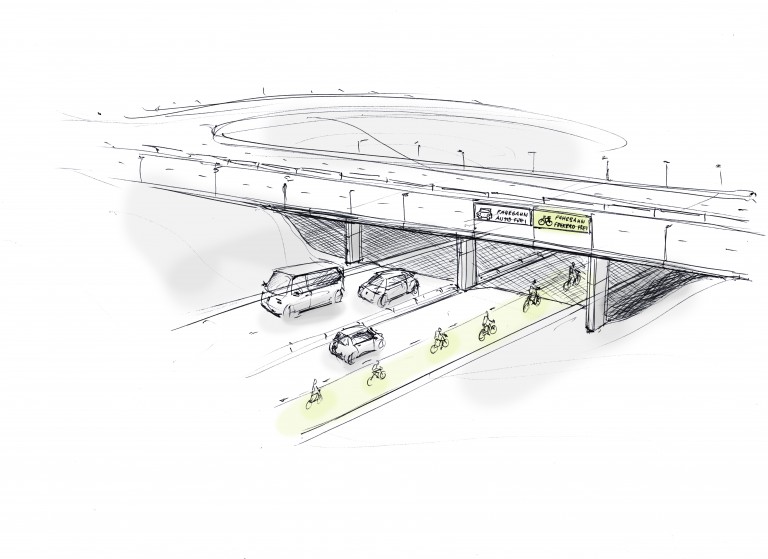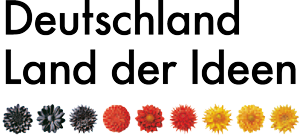Intelligent-shared-Space
Enhancing the attractiveness of cycling by making additional lanes available to cyclists as required.

The idea
These days, the media report almost daily on rising sales figures in the cycling sector. In particular because of the travel restrictions, many people have rediscovered cycling as a leisure activity. This positive feeling should be exploited for everyday mobility, too. However, many commuters still prefer using a car in everyday life as they consider it a faster and more convenient way to get to their destinations. This means that the attractiveness of bicycles must be further enhanced.
During the corona pandemic, the issue of making lanes available exclusively for the use of cyclists has been often discussed and sometimes put into action. So why not continue using this principle in a dynamic way? The digital transformation permits a multitude of possibilities: detectors (count sites, Bluetooth measuring systems) recognize rising user numbers on cycleways and transmit this information to a traffic control module. With this information, a city can, for example, decide to close one of the two lanes in each direction to cars and make it available exclusively to cyclists. The expanded space makes it possible for fast cyclists as well as handbikers to navigate faster and more safely through traffic. As a result, there is no longer a need for risky overtaking manoeuvres on narrow cycle lanes, cyclists maintain a larger safety distance from motorized traffic and can more easily adapt their speeds to benefit from “green waves”. This makes everyday cycling more attractive and safer. In addition, in particular in cities, there is a sustained improvement in the climate.
The objective of the project is to enhance the attractiveness of cycling in large cities. At the same time, it aims to increase road safety and improve the climate. Digital applications can make a major contribution to this.
Motivation behind the idea
The demand for bicycles is rising, especially during the ongoing times of corona. At the same time, using a bicycle instead of a car has become a real life philosophy for more and more people. However, this positive trend conflicts with almost daily news about accidents involving cyclists. As a result, criticism of bike-unfriendly cities is growing. Promoting bike-friendliness in cities and increasing road safety is thus the motivation behind this idea.

Biographical sketch
Sten Eibenstein has a Master's degree in tourism management. He works as a mobility manager for the Saxon Switzerland region. His focus is on the development of sustainable mobility solutions in a region of Germany that is very attractive, including for tourists. As he lives in Dresden, he understands very well the differing mobility needs in cities as well as in rural areas.
“In these times, road safety should always be the highest premise. Every person injured or killed on the roads is one too many. For this reason, we should continue to use the digital transformation for transport development in a targeted way.”
Sten Eibenstein


